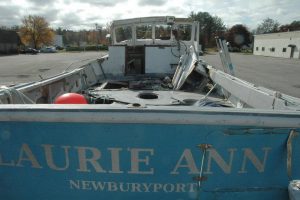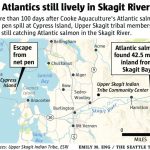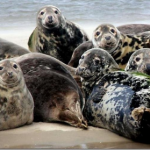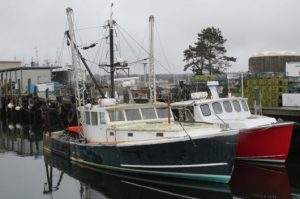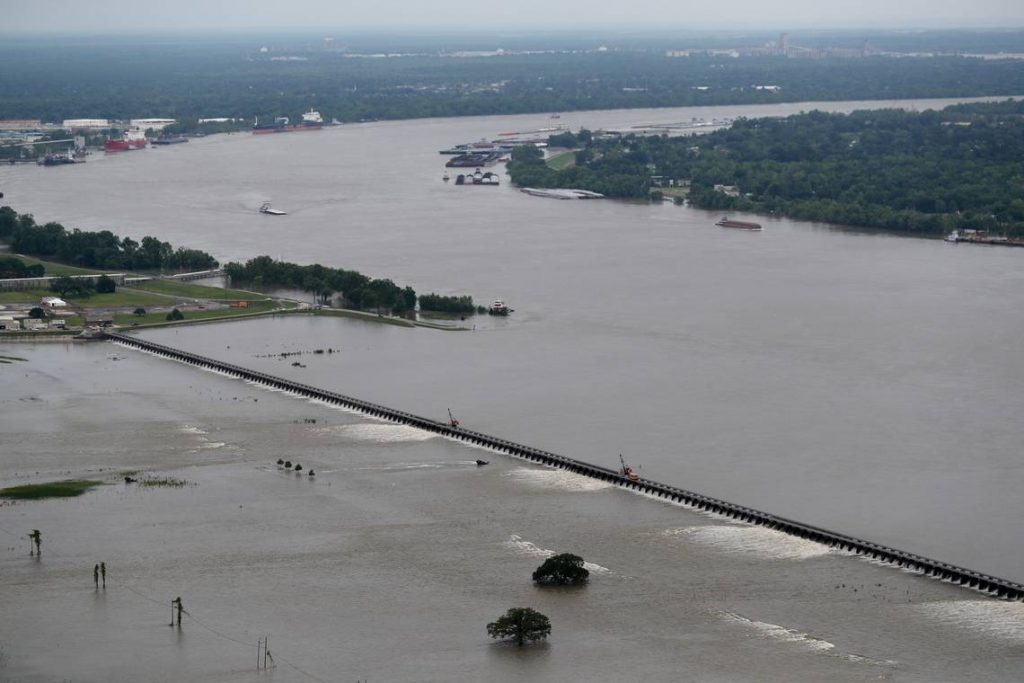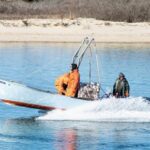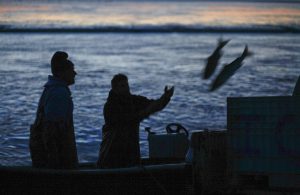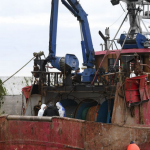Tag Archives: at-sea monitors
New Hampshire: NOAA monitoring fee will kill local fishing industry
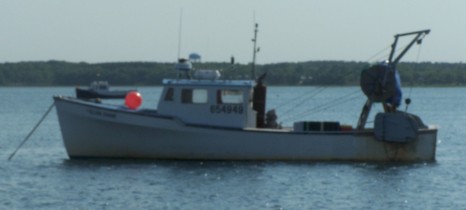 Local fishermen say the looming cost of paying $700 per day, for at-sea monitors, could put them out of business by the end of the year. It’s a threat that everyone should take seriously. “The day I really have to pay for this is the day I stop going fishing,” says David Goethel, a commercial fisherman from Hampton. “The airlines do not pay for the TSA, agribusiness does not pay for meat inspection, and pharmaceutical companies do not pay for the FDA, to name a few,” Goethel said. “These are considered functions of government and so is catch monitoring.” Read the rest here 08:40
Local fishermen say the looming cost of paying $700 per day, for at-sea monitors, could put them out of business by the end of the year. It’s a threat that everyone should take seriously. “The day I really have to pay for this is the day I stop going fishing,” says David Goethel, a commercial fisherman from Hampton. “The airlines do not pay for the TSA, agribusiness does not pay for meat inspection, and pharmaceutical companies do not pay for the FDA, to name a few,” Goethel said. “These are considered functions of government and so is catch monitoring.” Read the rest here 08:40
Covering the cost of NOAA at-sea monitors have been delayed by one month to Dec. 1
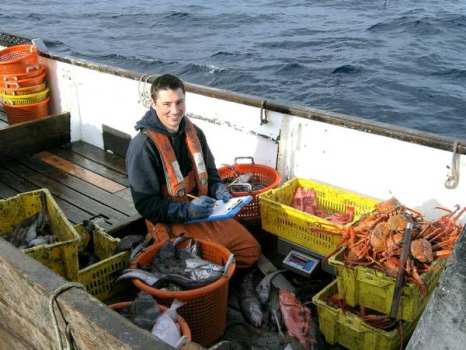 Costs fishermen say will break their business for good have been delayed by one month, National Oceanic and Atmospheric Administration announced Wednesday. NOAA said this summer fishermen would have to begin paying roughly $700 per day for 24 percent of their fishing days starting Nov. 1, covering the cost of at-sea monitors to observe fishermen’s compliance with regulations. NOAA currently pays for the at-sea monitoring. Read the rest here 09:09
Costs fishermen say will break their business for good have been delayed by one month, National Oceanic and Atmospheric Administration announced Wednesday. NOAA said this summer fishermen would have to begin paying roughly $700 per day for 24 percent of their fishing days starting Nov. 1, covering the cost of at-sea monitors to observe fishermen’s compliance with regulations. NOAA currently pays for the at-sea monitoring. Read the rest here 09:09
Environmental groups’ misguided spending on oceans
 Carlos Rafael famously and accurately predicted about five years ago that using the quota system known as catch shares in the Northeast Multispecies Fishery would drive small boats out of the water and consolidate licenses into the hands of a few. His operation would be fine, he said, because of its size. Now that government regulators have determined that fishermen will bear the cost of at-sea monitors, the pescatarian prognosticator has made another prediction. In a letter to the editor last week, the Oracle of the Ocean pointed out that analysis by the regulators,,, Read the rest here 08:37
Carlos Rafael famously and accurately predicted about five years ago that using the quota system known as catch shares in the Northeast Multispecies Fishery would drive small boats out of the water and consolidate licenses into the hands of a few. His operation would be fine, he said, because of its size. Now that government regulators have determined that fishermen will bear the cost of at-sea monitors, the pescatarian prognosticator has made another prediction. In a letter to the editor last week, the Oracle of the Ocean pointed out that analysis by the regulators,,, Read the rest here 08:37
NOAA and it’s ENGO “Partner’s” issues report on at-sea monitors
 NOAA Fisheries this week stepped further into that maelstrom with a largely internally generated report that focuses on cost comparisons between the current manual system of at-sea monitoring and electronic monitoring. It also released an independent review of the NOAA report. The NOAA report, generated with the assistance of the Gulf of Maine Research Institute and other non-governmental organizations, concedes a wide array of assumptions — it is based on hypothetical Northeast multispecies and Atlantic herring and mackerel fisheries — and accepts that it is merely “a starting point for developing future [electronic monitoring] program designs.” The conclusions? Read the rest here 08:14
NOAA Fisheries this week stepped further into that maelstrom with a largely internally generated report that focuses on cost comparisons between the current manual system of at-sea monitoring and electronic monitoring. It also released an independent review of the NOAA report. The NOAA report, generated with the assistance of the Gulf of Maine Research Institute and other non-governmental organizations, concedes a wide array of assumptions — it is based on hypothetical Northeast multispecies and Atlantic herring and mackerel fisheries — and accepts that it is merely “a starting point for developing future [electronic monitoring] program designs.” The conclusions? Read the rest here 08:14
Carlos Rafael — White House should heed call on burden of at-sea monitors
 In a show of bipartisan cooperation that’s all too rare in today’s politics, Massachusetts’ Republican governor and all-Democratic congressional delegation united late last month to call upon the Obama administration to reverse a particularly egregious federal policy: the current plan by NOAA to require the fishing industry to pay the full cost for at-sea monitors for the groundfish fishery. Fishermen will now be required to hire monitors from an approved short list of for-profit companies. This policy will impose a significant burden on area fishermen, and poses a threat to the future of a fishery that is already reeling from a string of onerous federal regulations. Read the rest here 09:05
In a show of bipartisan cooperation that’s all too rare in today’s politics, Massachusetts’ Republican governor and all-Democratic congressional delegation united late last month to call upon the Obama administration to reverse a particularly egregious federal policy: the current plan by NOAA to require the fishing industry to pay the full cost for at-sea monitors for the groundfish fishery. Fishermen will now be required to hire monitors from an approved short list of for-profit companies. This policy will impose a significant burden on area fishermen, and poses a threat to the future of a fishery that is already reeling from a string of onerous federal regulations. Read the rest here 09:05
Groundfish industry taking another hit with addition of at-sea monitors – Steve Urbon
 So this is how it looks. The gradual collapse of the New England groundfish industry continued last week as about two dozen people jammed into a meeting room of the state’s Division of Marine Fisheries office in the former voc-tech school on Purchase Street to argue about the distribution of disaster relief money allocated by Congress. Adding insult to injury is the impending shift of costs for at-sea monitors to the fishing boats. Fishing industry advocates liken this to a shotgun wedding, in which the boats have no choice but to sign a contract with a third party with no say in the price being paid. Read the rest here 09:09
So this is how it looks. The gradual collapse of the New England groundfish industry continued last week as about two dozen people jammed into a meeting room of the state’s Division of Marine Fisheries office in the former voc-tech school on Purchase Street to argue about the distribution of disaster relief money allocated by Congress. Adding insult to injury is the impending shift of costs for at-sea monitors to the fishing boats. Fishing industry advocates liken this to a shotgun wedding, in which the boats have no choice but to sign a contract with a third party with no say in the price being paid. Read the rest here 09:09
Disburse disaster aid to all active fishermen – Jan Margeson, Brewster
 A typical small-boat fisherman from Cape Cod — or anywhere in the state for that matter — has more than navigating around the tides and the wind to contend with in today’s complicated regulatory world and in the face of a changing ocean. There’s crew to pay to sustain viable communities, gear and fuel to buy to support a coastal economy, and safety equipment to update to make sure they are prepared in any emergency. Starting in October, these family fishermen will have to undertake a new added expense: paying for who count the fish they harvest and those they have to throw back. Read the rest here 08:38
A typical small-boat fisherman from Cape Cod — or anywhere in the state for that matter — has more than navigating around the tides and the wind to contend with in today’s complicated regulatory world and in the face of a changing ocean. There’s crew to pay to sustain viable communities, gear and fuel to buy to support a coastal economy, and safety equipment to update to make sure they are prepared in any emergency. Starting in October, these family fishermen will have to undertake a new added expense: paying for who count the fish they harvest and those they have to throw back. Read the rest here 08:38
Fishermen to pay $700 a day for at-sea monitors – Will Crush New England’s small boat fleet
Groundfishermen monitored by a federal agency will soon have to pay roughly $700 for their own  , a cost they say is “one more nail in the coffin” to put them out of business. The announcement comes at a time when the commercial and recreational groundfishing industry is struggling because of what they feel are strict federal regulations. “The day I really have to pay for this is the day I stop going fishing,” said David Goethel, a commercial fisherman from Hampton. “With the at-sea monitoring heaped upon fishermen, it very well could be the tipping point for many vessels, many permit holders,” said Dr. David Pierce, acting director of the Massachusetts Division of Marine Fishery. Read the rest here
, a cost they say is “one more nail in the coffin” to put them out of business. The announcement comes at a time when the commercial and recreational groundfishing industry is struggling because of what they feel are strict federal regulations. “The day I really have to pay for this is the day I stop going fishing,” said David Goethel, a commercial fisherman from Hampton. “With the at-sea monitoring heaped upon fishermen, it very well could be the tipping point for many vessels, many permit holders,” said Dr. David Pierce, acting director of the Massachusetts Division of Marine Fishery. Read the rest here
Looming cost of at-sea monitors could put N.E. fishermen out of business
 Officials with the National Oceanic and Atmospheric Administration’s National Marine Fisheries Service said the money it had been using to pay for the monitors — trained workers who collect data on fishing trips — will be needed for other obligations. That means groundfishermen who catch fish like cod, haddock and pollock in New England waters will likely have to start paying the cost around August. The new expense is coming at a time when it could cripple the fishery, fishermen said. Read the rest here 13:08
Officials with the National Oceanic and Atmospheric Administration’s National Marine Fisheries Service said the money it had been using to pay for the monitors — trained workers who collect data on fishing trips — will be needed for other obligations. That means groundfishermen who catch fish like cod, haddock and pollock in New England waters will likely have to start paying the cost around August. The new expense is coming at a time when it could cripple the fishery, fishermen said. Read the rest here 13:08
Fishermen in Prince Rupert say new monitoring requirements are too costly, DFO has a hidden agenda of ridding the coast of the commercial fishery
 northernview.com – Fishermen from Prince Rupert and as far away as the Nass Valley claim they are being unfairly targeted by the Department of Fisheries and Oceans, claiming the DFO has a hidden agenda of ridding the coast of Fishermen from Prince Rupert. continued
northernview.com – Fishermen from Prince Rupert and as far away as the Nass Valley claim they are being unfairly targeted by the Department of Fisheries and Oceans, claiming the DFO has a hidden agenda of ridding the coast of Fishermen from Prince Rupert. continued


































